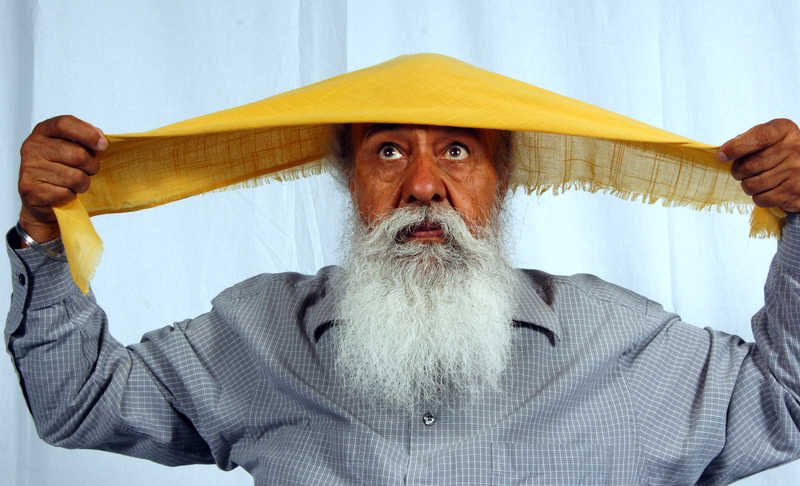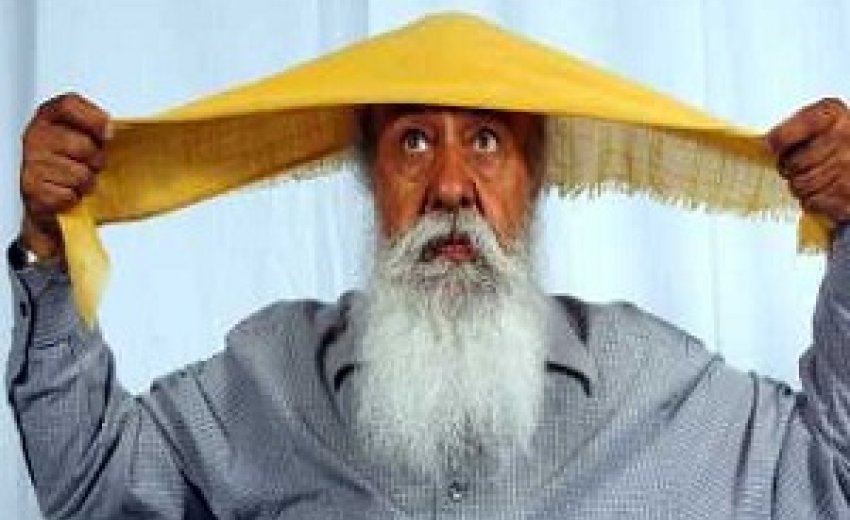
I wear a turban, I have a beard and I teach law at an American university. I am not a terrorist. Yet every day I live with the perception that men who wear turbans are bent on destruction. It's a perception faced by Sikhs across the United States, since nine out of 10 of us wear turbans.
My turban is part of my identity; as a Sikh, my religion requires me to wear it. That requirement was the same one that two elderly men from Sacramento were following when they were brutally assaulted while wearing their turbans.
Police found Surinder Singh, 65, and Gurmej Atwal, 78, on the sidewalk about 4:30 p.m. March 4, each with multiple gunshot wounds to the upper torso. Singh was pronounced dead at the scene and last week Atwal died in a hospital. Police and members of the local Sikh community believe Singh and Atwal were attacked because they allegedly looked like Islamic fundamentalists.
I heard about Singh and Atwal minutes after I had wrapped up a class on cross-cultural dispute resolution at the law school in Salem where I teach. I had just shown a documentary called "Divided We Fall," which included the details of the first hate crime victim after 9/11. The victim was a Sikh. The attacks on Singh and Atwal shocked me. Even after calls for tolerance of ethnic and religious minorities, Sikhs remain victims.
The hatred and ignorance is not exclusive to America. While studying law at a university in Hyderabad, India, I was the only Sikh male student on campus. On more than a few occasions, other students laughed at me solely because I was the only one on campus who wore a turban. My "friends" suggested I cut my hair and remove my turban forever. I was so distressed that I sought advice from my father, a respected scholar who has worn a turban all his life. I told him I was tired of being easily identified as a Sikh on my small campus. I was exhausted from carrying the responsibility of our traditions.
During a late-night call, my father set me straight. He reminded me that during the Mughal Dynasty, Sikh gurus sacrificed their lives to stop the forceful conversion of Hindus to Islam. They died fighting for justice and equal rights. Nevertheless, my father granted me permission to take off my turban. But there was a catch: I could do so as long as one of my "friends" agreed to wear it. His advice worked. When I made the offer, my friends never teased me again.
The challenges of wearing a turban continued after I came to America in 2005. On a trip to a grocery store in Oregon with my wife, I noticed a woman consoling her young daughter while staring at me. As I listened, I heard her say, "Be careful of him." Disheartened, I approached the child, bent down, and said softly, "I am a nice man. I am Sikh. I came from India and please don't be scared." She smiled, but when I returned to my wife, she asked, "So how many people are you going to explain who you are?" It was a good point. The opportunity to explain is rare, and I am seen by thousands more people than I can speak to. I am now in a place where instead of making fun of me, people get scared of me.
I wish I didn't have to explain. There is a great deal about Sikhism that I wish Americans understood. I wish they knew how much of my religious practice is consumed with my chosen academic discipline – conflict resolution and peacemaking. Americans don't realize that on 9/11, I felt miserable. I was sickened by the pictures and the devastation. I wish it had never happened.
Even though wearing a turban isn't easy, I feel incomplete without it. That 8-meter cloth on my head reminds me of my devotion to the cause of peaceful living and higher thinking. I am sure these thoughts went through the minds of Singh and Atwal as they were taking their evening walk. Perhaps they were even thinking how satisfied they were about their choice to move to America. And then they were shot.
Like Atwal and Singh, I made the choice to move thousands of miles away from my family in search of a better life. I had heard about the courage of Americans and their tolerance for ethnic minorities and different religions. For most of my stay, I have seen the best of America. For the most part, I have felt welcomed. Except for the times when I walk down the street and I know that someone may be thinking I'm a terrorist.
Sukhsimranjit "Sukh" Singh is associate director of the Center for Dispute Resolution at Willamette University College of Law in Salem.
